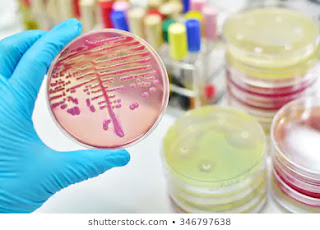A Guide on How to Confirm a Yeast Infection
The best way how to confirm a yeast infection is either you make an appointment with your doctor to perform a diagnosis or taking an over the counter test. Your doctor will perform a physical assessment and take a sample of your vaginal discharge. An over the counter test, on the other hand, works much like a home pregnancy kit test where the pH balance in your system is tested to confirm the presence of a yeast infection.
It is always a good idea to confirm that you have a yeast infection before finally deciding to treat it with over the counter medications. You may end up doing even more harm to your self if you treat a condition that you do not have. A yeast infection is a bothersome condition, to say the least. However, self medicating a suspected yeast infection may disrupt the normal pH balance of the vaginal area, causing the proliferation of microorganisms which may lead to actual infections.
The trouble with resorting to over the counter yeast infection medications right away is that women are using them for the treatment of something they do not actually have. A woman who goes through certain signs and symptoms in and around her vaginal area may immediately think she is experiencing a yeast infection. But the truth is there are many other infections that also demonstrate the presenting signs and symptoms of a yeast infection. These may include bacterial vaginosis, Chlamydia and even gonorrhea.
However, there are three specific signs and symptoms of a yeast infection: discomfort, appearance and odor. If you are experiencing the stated signs and symptoms, you are most likely suffering a yeast infection.
The most obvious symptom of a yeast infection is the discomfort in the affected area. This is certainly one of the revealing and most common symptoms of a yeast infection. The kind of discomfort is often described as an intense burning or itching sensation. Pain in urinating is experienced because of the irritated lining of the vaginal area. In severe cases the infected individual may experience extreme discomfort in the area that carrying out normal daily activities such as walking is impaired. Sexual intercourse too becomes painful for most affected women.
Another way which will help you consider the likelihood of a yeast infect ion is by taking note of the appearance of the affected area. Most individuals afflicted with a yeast infection describe in their private area specifically, in the vaginal area in terms of an unsightly white clump of material that resembles curdled milk. Redness and soreness is evident in the affected area. A discharge may or may not be present, depending on the case. Note that only about 20% of women afflicted the infection report the presence of a discharge in the vaginal area. The discharge may be clear to whitish or slightly yellowish, and may be anywhere from thin to thick consistency.
Lastly, another sign that may help how to confirm a yeast infection is the distinct odor. The discharge may or may not be accompanied by a starchy odor, the kind that resembles bread or beer. Notice that yeast is used in bread making as a leavening agent, and in beer making for fermentation. That is because the infection basically is a fungal infection commonly caused by Candida albicans, a form of yeast.


